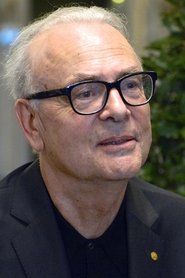 Patrick Modiano
Boulogne-Billancourt, Hauts-de-Seine, France
Patrick Modiano
Boulogne-Billancourt, Hauts-de-Seine, France

Jean Patrick Modiano (born 30 July 1945), generally known as Patrick Modiano, is a French novelist and recipient of the 2014 Nobel Prize in Literature. He is a noted writer of autofiction, the blend of autobiography and historical fiction.
In more than 40 books, Modiano used his fascination with the human experience of World War II in France to examine individual and collective identities, responsibilities, loyalties, memory, and loss. Because of his obsession with the past, he was sometimes compared to Marcel Proust. Modiano's works have been translated into more than 30 languages and have been celebrated in and around France, but most of his novels had not been translated into English before he was awarded the Nobel Prize.
Modiano previously won the 2012 Austrian State Prize for European Literature, the 2010 Prix mondial Cino Del Duca from the Institut de France for lifetime achievement, the 1978 Prix Goncourt for Rue des boutiques obscures, and the 1972 Grand Prix du roman de l'Académie française for Les Boulevards de ceinture.
Jean Patrick Modiano was born in Boulogne-Billancourt, a commune in the western suburbs of Paris on July 30, 1945. His father, Albert Modiano (1912–77, born in Paris), was of Jewish-Italian origin; on his paternal side he was descended from the well known Italo-Jewish Modiano family of Thessaloniki, Greece. His mother, Louisa Colpeyn (1918–2015), was a Belgian (Flemish) actress. Modiano's parents met in occupied Paris during World War II and began their relationship semi-clandestinely (they separated shortly after Patrick's birth). His father had refused to wear the Yellow badge and did not turn himself in when Paris Jews were rounded up for deportation to Nazi concentration camps. He was picked up in February 1942, and narrowly missed being deported, after an intervention from a friend. During the war years Albert did business on the black market and was allegedly associated with the Carlingue, the French Gestapo auxiliaries which recruited its leaders from the underworld. Albert Modiano never clearly spoke of this period to his son before his death in 1977.
Patrick Modiano's childhood took place in a unique atmosphere. He was initially brought up by his maternal grandparents who taught him Flemish as his first language. The absence of his father, and frequently also of his mother, on tour, brought him closer to his two-year-younger brother, Rudy, who suddenly died of a disease at age 9 (Patrick Modiano dedicated his works from 1967 to 1982 to his brother). Recalling this tragic period in his famed memoir Un Pedigree (2005), Modiano said: "I couldn't write an autobiography, that's why I called it a 'pedigree': It's a book less on what I did than on what others, mainly my parents, did to me." ...
Source: Article "Patrick Modiano" from Wikipedia in English, licensed under CC-BY-SA 3.0.
















